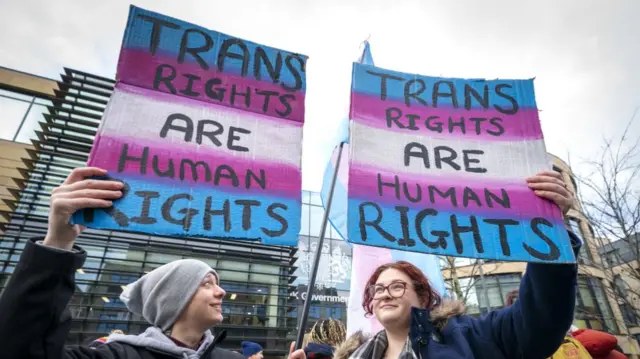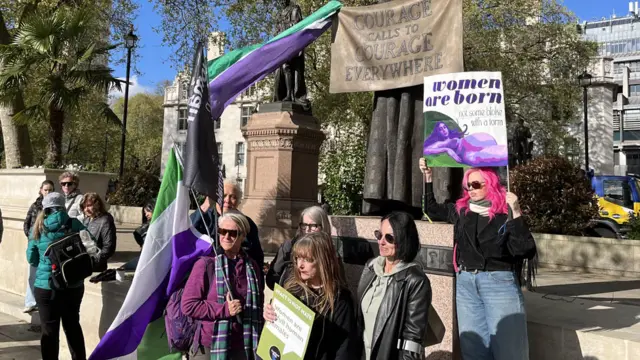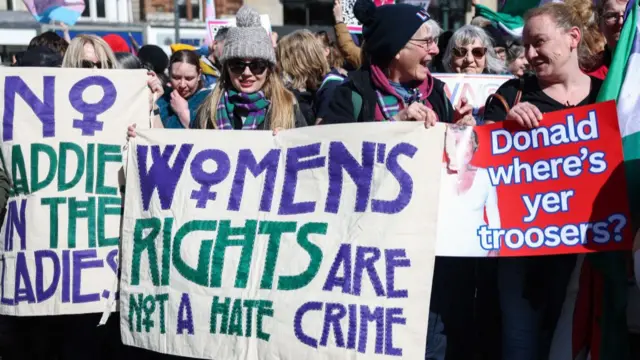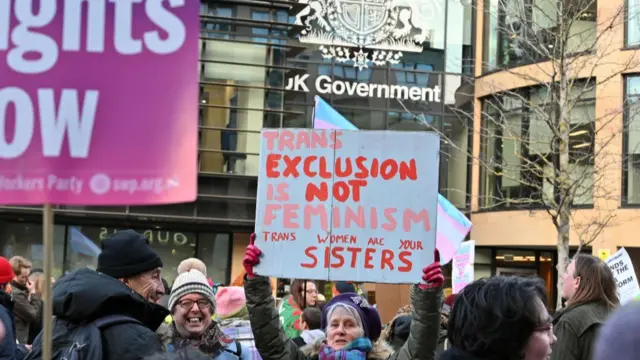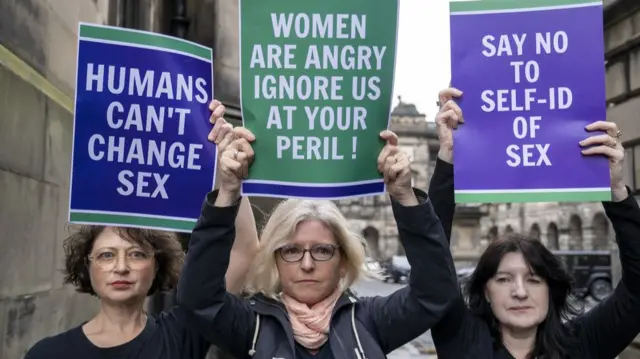
Outpouring of emotionspublished at 10:23 BST 16 April
 Philip Sim
Philip Sim
BBC Scotland political correspondent, at the Supreme Court
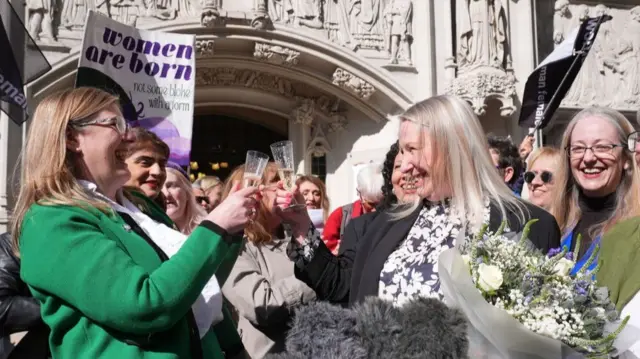 Image source, PA Media
Image source, PA MediaFor Women Scotland directors Susan smith and Marion Calder celebrate outside the Supreme Court
The campaigners broke into applause as the judges left the courtroom.
All had been warned not to disrupt proceedings while the court was in session, but there was an immediate outpouring of emotion afterwards.
The For Women Scotland team were in tears, quickly enveloped in a group hug.
Lord Hodge said the ruling should not be seen as a triumph for one group over another, but the cheering and singing has spilled out onto the street outside the court - this is clearly being celebrated as a win by the group.

